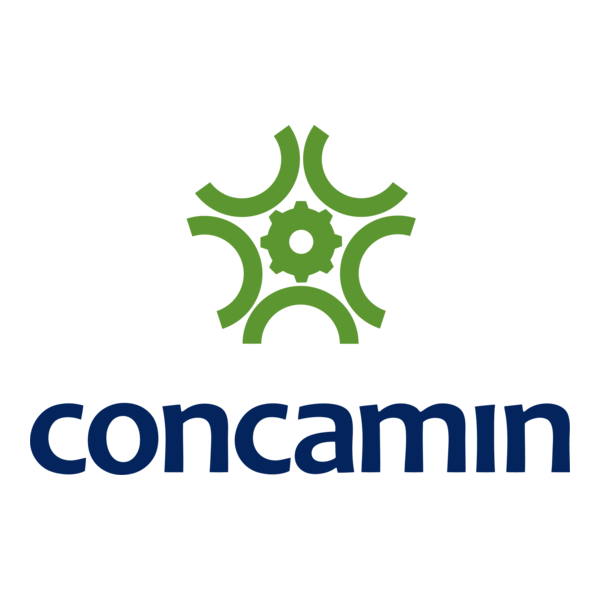
Convin: Complete Buyer's Guide
AI-powered voice commerce platform
Convin is an AI-powered voice commerce platform that automates customer interactions through intelligent phone calls, targeting the rapidly expanding voice commerce market projected to reach $186.28 billion by 2030[2]. The company positions itself as a comprehensive solution for ecommerce businesses seeking to reduce operational costs while improving customer engagement through automated voice interactions.
Market Position & Maturity
Market Standing
Convin operates within the specialized voice automation segment rather than competing directly with ecosystem leaders like Amazon Alexa or Google Assistant, positioning itself as a cost-effective alternative for businesses prioritizing operational efficiency over comprehensive platform integration[41][56].
Company Maturity
Company maturity indicators show a 70% SMB/mid-market and 30% enterprise customer distribution[57][58], suggesting successful market penetration across business segments while maintaining focus on cost-conscious implementations.
Growth Trajectory
Growth trajectory evidence includes expanding industry coverage beyond ecommerce into BFSI, healthcare, and real estate sectors[50][57].
Industry Recognition
Industry recognition comes primarily through customer success stories and case study documentation rather than major analyst awards, reflecting the vendor's practical focus on delivering measurable business outcomes over marketing recognition[57].
Strategic Partnerships
Strategic partnerships include technology integrations with voice AI providers and CRM platforms, though the vendor lacks the extensive ecosystem partnerships available to platform leaders[49][52].
Longevity Assessment
Longevity assessment suggests stable operations with consistent customer growth across multiple industries, though the competitive voice commerce market requires continued innovation to maintain market position against both specialized competitors and ecosystem platforms[41][56].
Proof of Capabilities
Customer Evidence
Customer evidence demonstrates measurable outcomes across diverse implementations. Livpure achieved a 50% reduction in social media escalations and 48% faster agent onboarding using Convin's AI-powered call audits[57]. A fintech client reported 15% enhanced collection efficiency and ₹30 Lakh fraud reduction through automated voice interactions[57].
Quantified Outcomes
Quantified outcomes show 60% increases in sales-qualified leads and 27% boosts in CSAT scores for ecommerce implementations[48][52].
Market Validation
Market validation includes 40% ecommerce customer concentration within Convin's implementation base[50][57], demonstrating significant traction within the target market.
Competitive Wins
Competitive wins include customer migrations from traditional call center solutions and basic IVR systems, though specific competitive displacement data against major voice commerce platforms remains undocumented[52][60].
Reference Customers
Reference customers span multiple industries with documented case studies, though luxury retailers and businesses with complex purchase journeys report limited effectiveness due to voice-only interaction constraints[57][60].
AI Technology
Convin's technology foundation centers on proprietary large language models (LLMs) integrated with advanced natural language processing capabilities designed specifically for voice commerce applications[50][52].
Architecture
Architecture and deployment options include cloud-based implementations with API integration capabilities for existing ecommerce platforms. The system supports real-time CRM updates and maintains seamless live-agent handoffs when AI capabilities reach their limits[50][52].
Primary Competitors
Primary competitors include ecosystem platforms (Amazon Alexa, Google Assistant) offering comprehensive integration capabilities and specialized voice automation vendors (Presto, ConverseNow) targeting specific industry segments[39][40][49][52].
Competitive Advantages
Competitive advantages include faster initial deployment (2-5 weeks vs. 12-26 weeks for complex implementations) compared to ecosystem platforms and extensive multilingual support (70+ languages) exceeding most specialized competitors[49][52][50].
Market Positioning
Market positioning emphasizes cost optimization and multilingual capabilities rather than comprehensive feature depth, appealing to organizations prioritizing operational efficiency over advanced integration[41][56].
Win/Loss Scenarios
Win/loss scenarios favor Convin for cost-conscious implementations with multilingual requirements and routine inquiry automation needs. Ecosystem platforms typically win for comprehensive ecommerce integration and advanced analytics requirements, while specialized competitors may excel in industry-specific optimization[49][52].
Key Features

Pros & Cons
Use Cases
Pricing
Featured In Articles
Comprehensive analysis of Voice Commerce for Ecommerce for Ecommerce businesses and online retailers. Expert evaluation of features, pricing, and implementation.
How We Researched This Guide
About This Guide: This comprehensive analysis is based on extensive competitive intelligence and real-world implementation data from leading AI vendors. StayModern updates this guide quarterly to reflect market developments and vendor performance changes.
60+ verified sources per analysis including official documentation, customer reviews, analyst reports, and industry publications.
- • Vendor documentation & whitepapers
- • Customer testimonials & case studies
- • Third-party analyst assessments
- • Industry benchmarking reports
Standardized assessment framework across 8 key dimensions for objective comparison.
- • Technology capabilities & architecture
- • Market position & customer evidence
- • Implementation experience & support
- • Pricing value & competitive position
Research is refreshed every 90 days to capture market changes and new vendor capabilities.
- • New product releases & features
- • Market positioning changes
- • Customer feedback integration
- • Competitive landscape shifts
Every claim is source-linked with direct citations to original materials for verification.
- • Clickable citation links
- • Original source attribution
- • Date stamps for currency
- • Quality score validation
Analysis follows systematic research protocols with consistent evaluation frameworks.
- • Standardized assessment criteria
- • Multi-source verification process
- • Consistent evaluation methodology
- • Quality assurance protocols
Buyer-focused analysis with transparent methodology and factual accuracy commitment.
- • Objective comparative analysis
- • Transparent research methodology
- • Factual accuracy commitment
- • Continuous quality improvement
Quality Commitment: If you find any inaccuracies in our analysis on this page, please contact us at research@staymodern.ai. We're committed to maintaining the highest standards of research integrity and will investigate and correct any issues promptly.